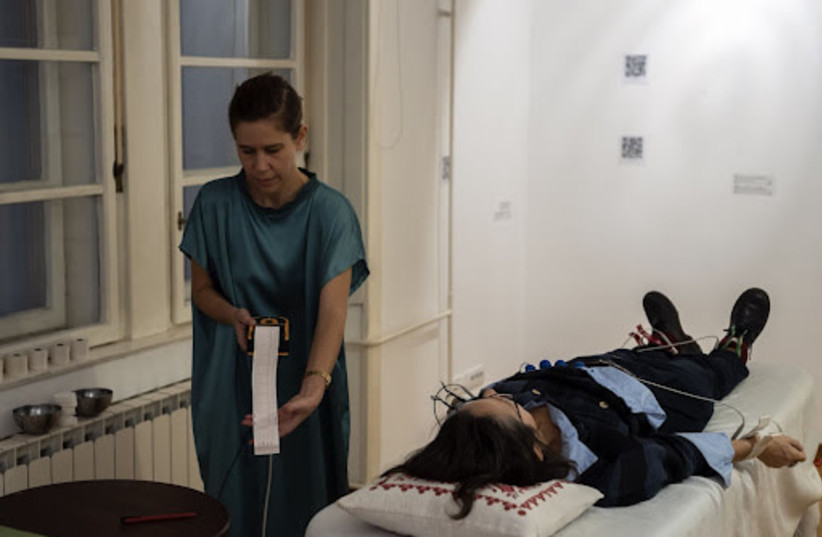Can heartbeats become music? According to Israeli artist, Moran Duvshani the answer is yes. With her installation “Cardiophone,” Duvshani offered the participants of the Art and Human Rights Festival in Belgrade the opportunity to listen to the melody of their hearts.
The festival was organized by the Dah Theater at the beginning of December. The initiative focused on the question “What can art and activism do regarding human rights violations today?”. It featured artists and activists from several countries, including the US, Iran, Russia and Israel. The program included workshops, installations, performances, concerts, talks, lectures and a film premiere.
The work of DAH Theater is aimed at the constant exchange of knowledge, experience and ideas among artists and participants from different theatrical and national traditions. The center pays attention to the education of young people in the direction of contemporary theatrical expression and introduces them to other branches of art.
Duvshani’s participation was supported by the Embassy of Israel in Serbia.
"Cardiophone" was conceived as a private listening to the melody of everyone’s own heart. The participatory work combines the use of a medical device and of a music box.

In Belgrade, the visitors were welcomed one at a time and invited to a three-stage journey that began with an EKG test and ended with listening to a unique melody generated by their own heart.
“The piece was conceptualized in the face of the death of my grandmother,” Duvshani explains in her website. “As her heartbeats were drawn daily on a screen above her hospital bed, I was suddenly met with a strong desire to have some memento, some physical testimony to the heartbeat of the woman I loved so much.”
“During the grieving process I realized that I must translate the motion of the heart into a melody,” she added. “Though I did not have the chance to transform my grandmother's heartbeat into music before she passed, the cardiophone has since played its melodies in Israel and abroad, in bell towers, kindergartens, museums, theatres, private homes and festivals, and will continue to travel the world.”
In Belgrade, Duvshani’s installation attractated hundreds of people, with a very long waiting list.
“My journey as an artist is paved by the obstacles I encounter, requiring ever-changing tools and forms,” she says. “My works embody fragments from this life-long journey, and are offered to the audience as souvenirs to carry as the journey continues.”

